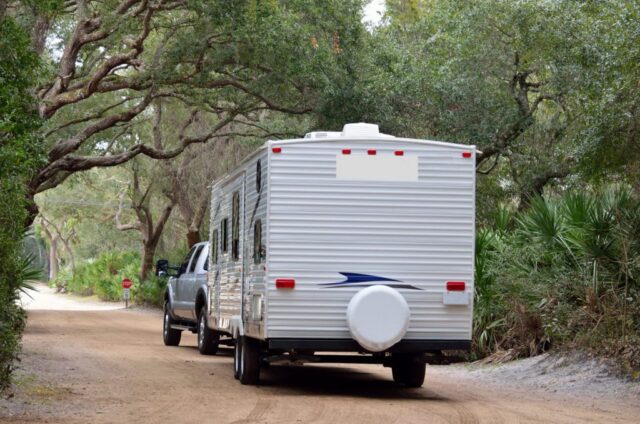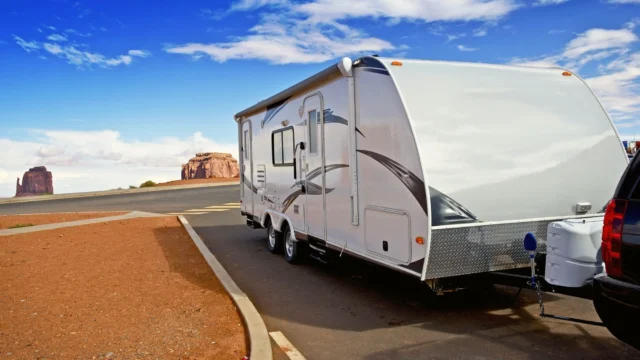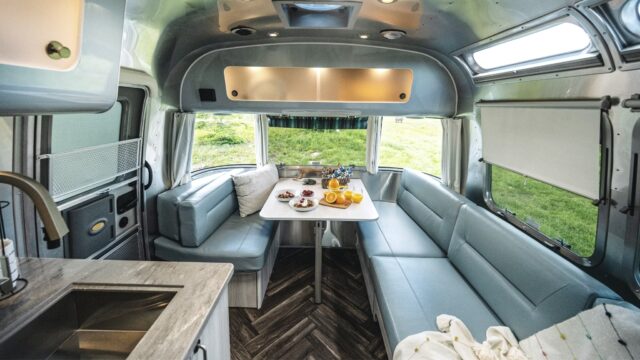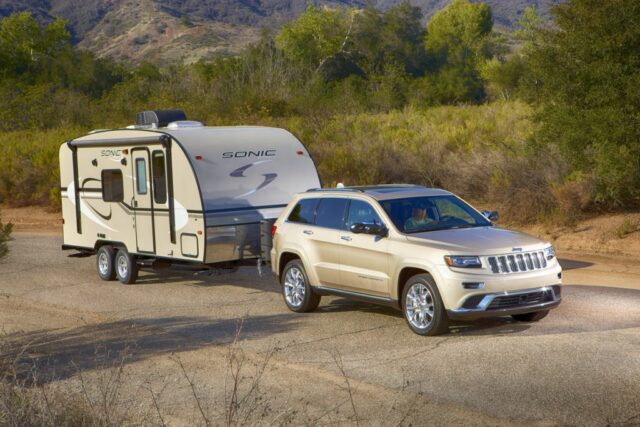
A travel trailer, often referred to as a caravan in certain regions, is a towable recreational vehicle that provides a place to sleep and live whilst away from home. These trailers, built to be pulled behind a vehicle, contain all the comforts and necessities of a basic home setting – kitchen, bedroom, and bathroom, thus granting the ability to travel or camp in comfort and style. Diverse in scale, theme, and acronym, the travel trailers range from compact models that can be pulled by cars to large, fully-featured ones, that require a much larger tow vehicle.
Choosing the right travel trailer is an imperative step because it greatly influences the entire travel experience. It forms the fine line difference between a frustrating trip with unnecessary issues and a seamless fun-filled adventure. The right choice depends on numerous factors that intersect with personal needs, preferences, and budget. These include but are not limited to the purpose of the trailer, frequency of use, common destinations and conditions, number of travelers, preferred amenities, the size and layout, the price range, and the tow vehicle capacity.
Understanding Your Traveling Needs

Self-reflection comes in handy when determining your travel frequency. Are you a seasoned camper who intends to use the trailer for long trips multiple times a year, or a newbie who only plans an occasional weekend getaway? Your frequency of use will align closely with your options for a travel trailer.
Analyze your common destinations and conditions. Are you drawn to the calmness of beachfront locations and the breathtaking views on top of mountain ridges? Each destination, with its own unique conditions, may require a different kind of travel trailer. Additionally, considering the number of travelers who will regularly come along on your adventures is critical in determining the space and amenities required in your travel trailer.
Size and Layout of the Travel Trailer
When it comes to travel trailers, size does matter, but it is not a one-size-fits-all situation. Small trailers might be more convenient when it comes to maneuverability and gas costs, but they can lack the comfort offered by larger trailers. On the flipside, while bigger trailers provide more amenities and space, they may pose challenges in parking or driving through tight spaces.
Similarly, the various layouts available with travel trailers cater to different traveler needs. An open layout with flexible sleeping areas might work best for a family, while a fixed bedroom might be more suited for a couple. The size and layout of your travel trailer will directly impact not only the cost and the maintenance of the vehicle but also the overall travel experience.
Amenities and Features

A comfortable travel trailer is more than just a vehicle; it’s a mini version of your home on wheels. It is important to consider its amenities for a pleasant and hassle-free experience. The most basic and commonly found amenities in a travel trailer include a kitchen, a bathroom, and an AC/heater.
The kitchen typically comprises essential appliances and units such as a refrigerator, a stove, and a small dining area. The bathroom, although compact, invariably features a shower, toilet, and sink. The AC/heater comes in handy for maintaining optimal temperature during varying weather conditions.
Amenities are not limited to these basics. With advancements in technology, modern travel trailers can also be equipped with need-based features such as Wi-Fi, solar panels, satellite TV, and so forth. Wi-Fi is essential for work-from-travelers and those who wish to remain connected with the world. Solar panels, while expensive, can be a great addition for eco-conscious travelers, significant for off-grid camping.
Satellite TV can provide entertainment during downtime. However, it’s worth considering that every additional amenity might come at a cost. Upgraded features will not only the purchase price but also the weight of the trailer, possibly affecting its driveability and fuel efficiency.
Price and Budget
When looking at travel trailers for sale, it’s essential to understand that prices can greatly vary. The cost of a travel trailer is contingent on a multitude of factors such as size, amenities, brand, and whether it’s used or new. Some smaller, simpler models can start from as low as $10,000, while luxury trailers featuring a wide range of amenities can reach well over $100,000.
In-between, there is abundant variety offering diverse options catering to all sorts of budgets. Therefore, it’s important to determine your financial means for an initial purchase before you start hunting for a travel trailer.
Tow Vehicle Capabilities

When it comes to matching the size of your travel trailer with your vehicle, there are a few key considerations to be mindful of. The first point is that your vehicle’s towing capacity should exceed the gross vehicle weight rating (GVWR) of your preferred trailer. The GVWR is the maximum allowable weight of the trailer when it’s fully loaded, and it includes everything from the actual weight of the trailer to the contents within it such as utensils, clothes, and passengers.
That said, it’s recommended to use only 80% of your vehicle’s maximum towing capacity to allow for a safety buffer. Lastly, it’s also important to ensure that your vehicle is equipped with the necessary towing features such as a hitch receiver, proper wiring for lights and brakes, and optionally, a brake controller for heavier trailers.
Your traveling needs should be the initial guiding star for your decision-making process. This consists of the frequency of your trips, the type of destinations you plan to visit, and the number of individuals who will accompany you. The size and layout of your travel trailer form the next part of your decision. A small trailer may be economical and easy to manage, but a larger one could cater to more people and provide more comfort. The amenities and features available in a trailer notably contribute to your travel experience, thus requiring thorough consideration.









